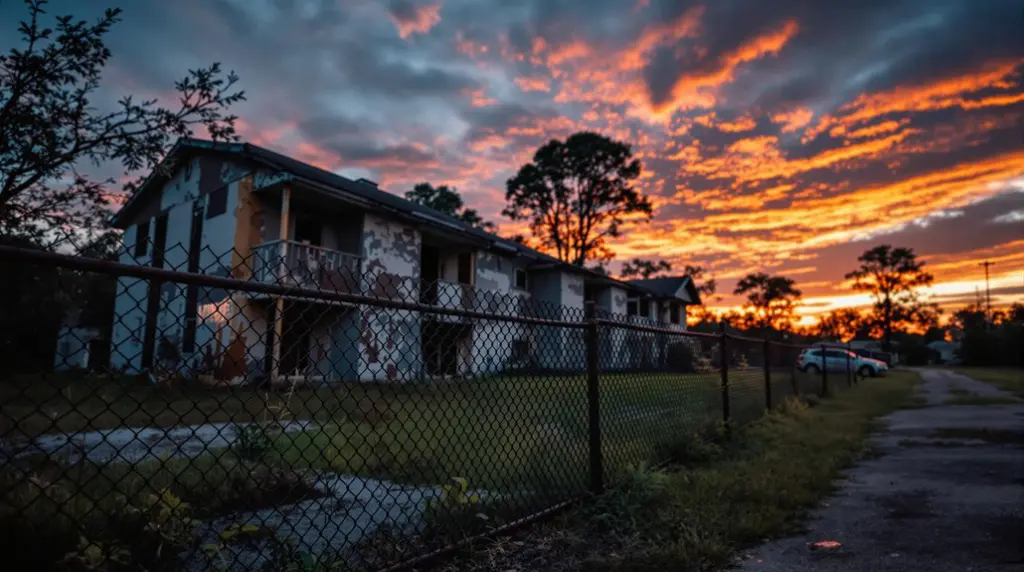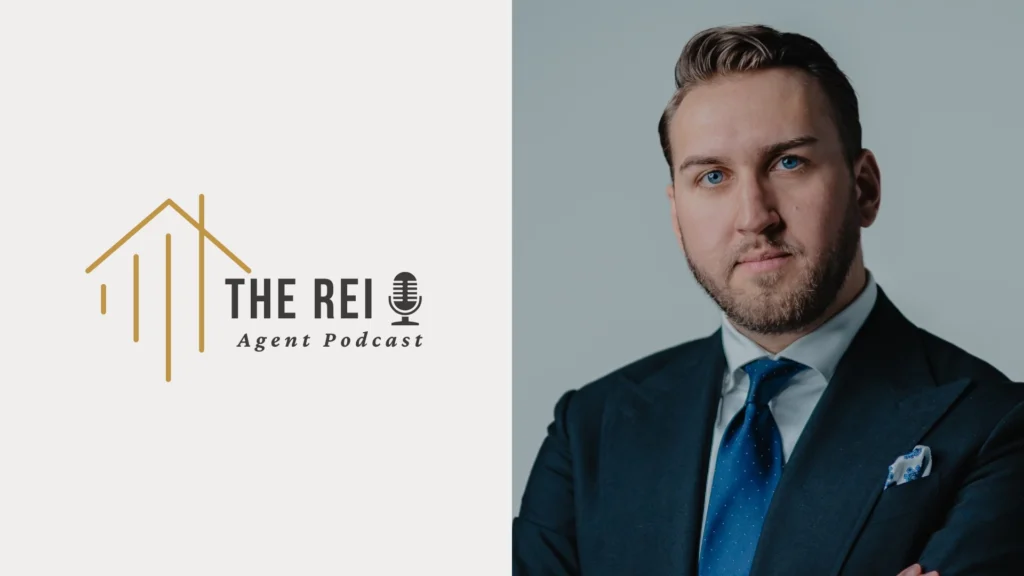Key Takeaways
- Arizona’s Attorney General is cracking down on a major foreclosure fraud ring targeting vulnerable homeowners through deceptive contracts and fake charities.
- Title companies and law firms are also under fire for enabling the equity-stripping scheme through fraudulent paperwork and property flips.
- The lawsuit reignites national scrutiny over wholesaling practices and the urgent need for regulation, transparency, and ethical conduct in distressed property deals.

Shocking Wholesaling Foreclosure Scam Lawsuit Exposes Alleged Equity-Stripping Empire Led by Investors and Title Companies
In what could be one of the most disturbing real estate fraud schemes in Arizona history, Attorney General Kris Mayes has filed a sweeping lawsuit against a group of real estate operators, title companies, and law firms accused of preying on homeowners in foreclosure and siphoning off millions in home equity.
But this isn’t just an Arizona issue—this case is a wake-up call for real estate investors nationwide.
What if your next partner is operating just like this behind closed doors?
What if your own deals are unknowingly part of a legal minefield?
Here’s what you need to know:
- Cameron Jones and Samuel Sutton allegedly used fake charities and high-pressure tactics to steal equity from vulnerable homeowners.
- Title companies and law firms are accused of rubber-stamping shady transactions to keep the scam running smoothly.
- Real estate wholesalers and investors are now under a microscope, and ethical lines have never been more important to draw clearly.
Enough background.
Let’s dive into the mechanics of this shocking scheme—and what it means for the future of real estate investing.
Fake Charities, Door-Knockers, and Deception: The Scam Blueprint
According to the 2025 complaint filed in Maricopa County Superior Court (Case No. CV2025-008024), investors Cameron Jones and Samuel Sutton—operating through their companies Gazelle Investors and Magnum Financial—built a network of “door knockers” who were dispatched within minutes of foreclosure notices hitting county websites.
Their targets: distressed homeowners in panic mode, often older or under duress.
Their pitch: foreclosure relief through a fictitious nonprofit called “Arizona’s Helping Hands.”
The truth?
These “charitable offers” were bait-and-switch deals designed to trick homeowners into signing away their equity via complex, often unlawful contracts.
Many didn’t realize they were selling their homes for just the amount owed in arrears—often as little as $20,000—while the investors flipped the homes for hundreds of thousands in profit.
Instead of the homeowners receiving foreclosure surplus funds under Arizona law, that money vanished into the pockets of the alleged scammers.
The Legal Machine That Enabled It: Title Companies and Law Firms Named
The lawsuit doesn’t stop at the investors. It also names major title companies, including Magnus Title and American Title, and law firm Fowler St. Clair.
Allegations include:
- Approving and notarizing deeds even when sales occurred at far below market value
- Facilitating rapid, layered property flips through shell companies
- Filing lawsuits against homeowners to finalize and enforce the predatory deals
Attorney General Mayes put it bluntly:
“This scheme relied on an entire ecosystem of supposedly legitimate businesses to put a veneer of legality on blatant consumer fraud.”
A Dirty Mirror: The Shaky History of Wholesaling Across America
This lawsuit adds fuel to an already raging fire over the legitimacy and regulation of wholesaling—a practice long living in the legal gray zones of the U.S. property market.
RELATED CONTENT
Wholesaling typically involves putting a property under contract and assigning that contract to a buyer for a fee.
While legal in many states, the line between ethical wholesaling and deceptive dealing has grown increasingly blurred.
As wholesaling has exploded in popularity—thanks to online gurus and get-rich-quick promises—so have state-level crackdowns.
Here’s a quick snapshot of wholesaling’s regulatory landscape:
- Illinois: Requires a broker’s license for more than one wholesale transaction per year. Violators face fines up to $25,000 per offense.
- Oklahoma: Passed HB 3104 (2022), requiring wholesalers to disclose their role in transactions and register with the state.
- Philadelphia: Requires a wholesaler license and mandates transparency on intent to assign contracts.
- Georgia, Kansas, Nebraska, and others: Have explored or enacted measures tightening wholesaling activity to prevent abuse.
State regulators are increasingly calling out wholesalers for deceptive marketing, failure to disclose their role in transactions, and misrepresenting home values to confused sellers.
In short, the industry has become a patchwork of local laws, warnings, and lawsuits—many sparked by investor greed cloaked in opportunity.
Arizona’s latest lawsuit is not an outlier—it’s part of a national trend where bad actors are prompting aggressive reform, putting every wholesaler, investor, and property professional on notice.
Arizona Just Sued These Wholesalers—Here’s Why It Matters
The real estate wholesaling industry just got rocked. In this video, I’m breaking down the recent lawsuit filed by the Arizona Attorney General against Gazelle Investors, Cameron Jones, Sam Sutton, and others—plus title companies and a law firm. As someone who’s fought for ethical wholesaling, I’m here to give you the full picture: what happened, what went wrong, and what this means for our industry. We’re not here to protect bad actors—we’re here to protect homeowners, investors, and the future of wholesaling. Watch until the end to learn how we’re taking action, what you need to watch out for, and how we’re building a national coalition to elevate this business the right way.
Jamil Damji
Wholesaling Industry in Turmoil: “This is a wake-up call!”
Jamil Damji, a well-known ethical wholesaling advocate and co-founder of the KeyGlee franchise, didn’t hold back in a recent video statement:
“This isn’t about the wholesale industry being attacked. This is about scumbags using fake nonprofits, pretending to be lenders, and misleading distressed homeowners to steal equity. That’s not wholesaling—that’s fraud.”
Damji emphasized the urgent need for ethical reform, advocating for the creation of a national wholesalers association—a nonprofit entity with a clear code of conduct for wholesalers to follow.
The goal: to distance legitimate investors from bad actors like Jones and Sutton, and to restore trust within the investing community and among distressed homeowners.
What’s Next: Legal Fallout and Industry Watchdogs on High Alert
The State of Arizona seeks:
- $10,000 per violation of the Arizona Consumer Fraud Act
- The dissolution of fraudulent companies
- A permanent ban on all defendants from conducting property transactions in Arizona
And it’s not stopping there.
AG Mayes has promised to file suit against any business supporting these schemes, warning that if they profited from fraud, the state will come after triple damages.
“If your business is helping these scammers, we will file suit against you seeking triple the amount you earned from the scam,” said Mayes. “The days of ripping off distressed Arizona homeowners are over.”
Arizona Sues Wholesalers For SCAMMING Homeowners! – Ft. Attorney Jeff Watson
In this video, Jerry Norton chats with special guest attorney Jeff Watson and weighs in on a current lawsuit from the Attorney General of AZ against a group of wholesalers and investors who scammed homeowners in foreclosure. Learn how this will impact all investors and what you should do right now to improve how you conduct business.
Flipping Mastery TV
Red Alert: Industry Leaders Warn This Lawsuit Sets National Precedent
If you thought this Arizona lawsuit was just another isolated scandal—think again.
Nationally recognized real estate educator Jerry Norton and veteran real estate attorney Jeff Watson have issued a sobering warning: this case is the beginning of a massive regulatory wave that could crash down on investors across the country.
“This is a wake-up call to everybody who is buying houses on a bulk basis or marketing to buy houses on a bulk basis,” said Watson. “It doesn’t matter if you’re a wholesaler, fix-and-flip investor, or anything else—you need to check your contracts, procedures, and intent right now.”
Watson and Norton emphasized that regulators are closely watching—and that this Arizona case is setting legal precedent that could be used to justify sweeping national regulations.
According to Watson, this lawsuit is far more than a civil matter; it’s a blueprint for state attorneys general across the U.S. to come after investors operating in legal gray areas.
The Harsh Truth: Integrity Now or Risk Ruin
From clouding titles with affidavits, to recruiting door knockers under false legal definitions, to failing to disclose intent to wholesale—Watson laid out in chilling detail how many common industry practices could now be interpreted as violations under consumer fraud and racketeering laws.
“Bad behavior equals bad facts. Bad facts give us bad case law,” said Watson, warning that one reckless operator can bring new regulations down on everyone.
And it’s not just the investors at risk.
Watson pointed out that title companies, closing attorneys, and other professionals could be held accountable for facilitating deals that regulators later deem abusive—even if they were just “following the investor’s lead.”
He predicts a major shift where lawyers and title companies will become more conservative, possibly rejecting wholesale-related contracts altogether.
The Takeaway for Every Investor
- Disclosure matters: Failing to be transparent about your intent to wholesale can now be interpreted as fraud.
- Intent is measurable: Regulators will review your past deals to determine if you ever intended to close.
- Contracts must be mutual: One-sided clauses, low earnest money, and open-ended inspection loopholes are red flags that could come back to haunt you.
Watson ended with a clear challenge to investors everywhere:
“Do you want to build a long-term business with integrity—or do you want to gamble your entire future on short-term, shady gains?”
This isn’t just about cleaning up your own deals. It’s about protecting the future of an entire industry from being legislated out of existence.
Assessment
This foreclosure scam case is a defining moment for property investing in the United States.
Not only does it highlight the legal risks of cutting corners, but it also calls for a renewed focus on ethics, transparency, and accountability—especially in the distressed property space.
For investors, wholesalers, and professionals alike, the message is clear: if you’re not protecting the people you’re buying from, you’re putting your entire business—and freedom—at risk.
Related Content:
- Multifamily Housing Boom! A Heroic Beacon Amid Economic Uncertainty
- Luxury Home Market Faces Major Slowdown Amid Trump Economic Uncertainty
- Wall Street Single-Family Home Takeover (Corporate Investor Invasion Intensifies)
- Warren Buffett’s Stark Warning! Berkshire Hathaway’s Strategic Retreat from the Stock Market





















